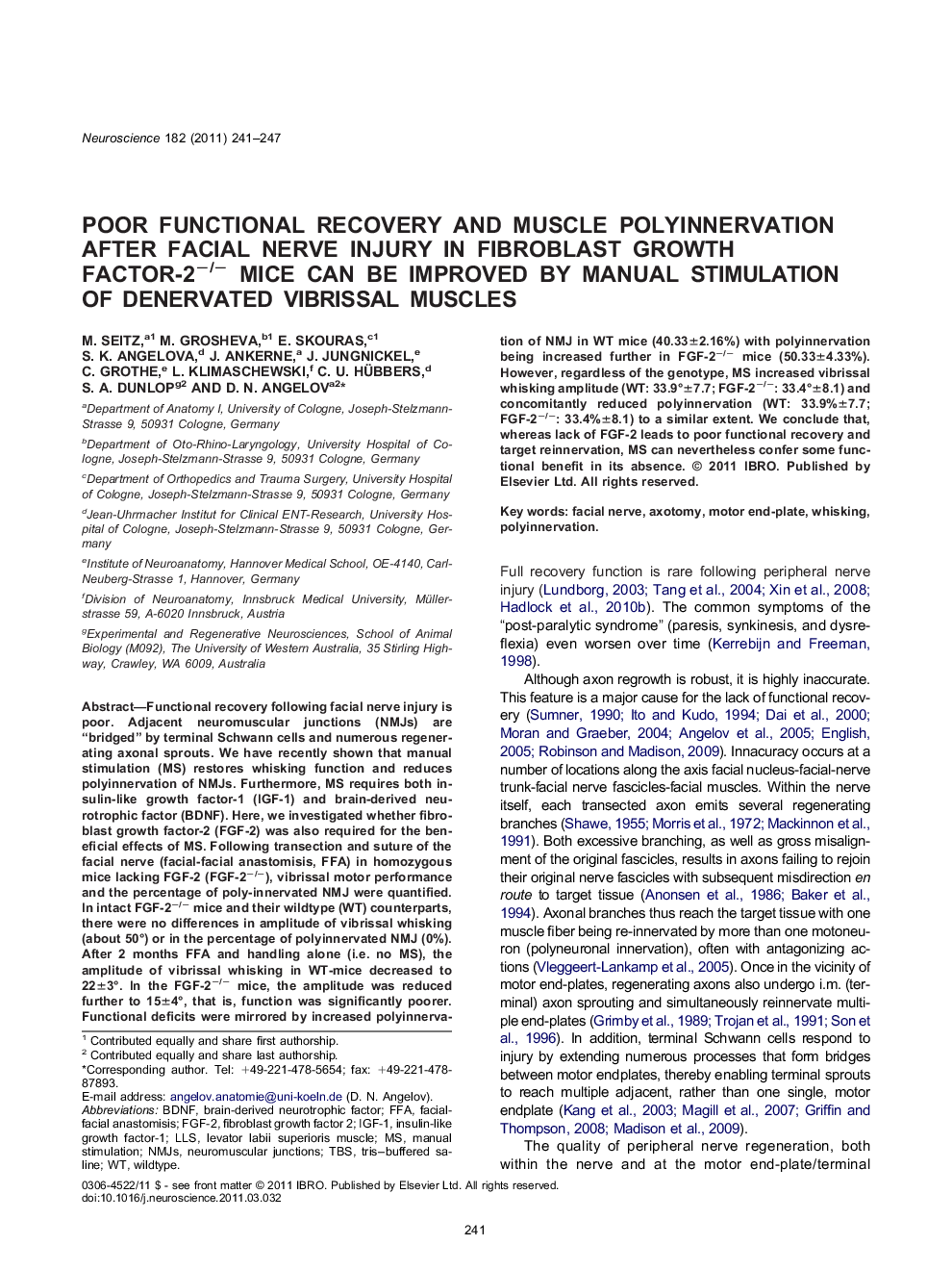| کد مقاله | کد نشریه | سال انتشار | مقاله انگلیسی | نسخه تمام متن |
|---|---|---|---|---|
| 4338978 | 1614894 | 2011 | 7 صفحه PDF | دانلود رایگان |

Functional recovery following facial nerve injury is poor. Adjacent neuromuscular junctions (NMJs) are “bridged” by terminal Schwann cells and numerous regenerating axonal sprouts. We have recently shown that manual stimulation (MS) restores whisking function and reduces polyinnervation of NMJs. Furthermore, MS requires both insulin-like growth factor-1 (IGF-1) and brain-derived neurotrophic factor (BDNF). Here, we investigated whether fibroblast growth factor-2 (FGF-2) was also required for the beneficial effects of MS. Following transection and suture of the facial nerve (facial-facial anastomisis, FFA) in homozygous mice lacking FGF-2 (FGF-2−/−), vibrissal motor performance and the percentage of poly-innervated NMJ were quantified. In intact FGF-2−/− mice and their wildtype (WT) counterparts, there were no differences in amplitude of vibrissal whisking (about 50°) or in the percentage of polyinnervated NMJ (0%). After 2 months FFA and handling alone (i.e. no MS), the amplitude of vibrissal whisking in WT-mice decreased to 22±3°. In the FGF-2−/− mice, the amplitude was reduced further to 15±4°, that is, function was significantly poorer. Functional deficits were mirrored by increased polyinnervation of NMJ in WT mice (40.33±2.16%) with polyinnervation being increased further in FGF-2−/− mice (50.33±4.33%). However, regardless of the genotype, MS increased vibrissal whisking amplitude (WT: 33.9°±7.7; FGF-2−/−: 33.4°±8.1) and concomitantly reduced polyinnervation (WT: 33.9%±7.7; FGF-2−/−: 33.4%±8.1) to a similar extent. We conclude that, whereas lack of FGF-2 leads to poor functional recovery and target reinnervation, MS can nevertheless confer some functional benefit in its absence.
▶Manual stimulation (MS) of denervated muscles improves functional recovery. ▶The growth factors IGF-1 and BDNF are required to mediate the effects of MS. ▶We investigated whether another growth factor, the FGF-2 was also necessary. ▶Following facial nerve injury FGF-2−/− mice responded well to MS. ▶FGF-2 is not required for the beneficial effects of MS.
Journal: Neuroscience - Volume 182, 19 May 2011, Pages 241–247